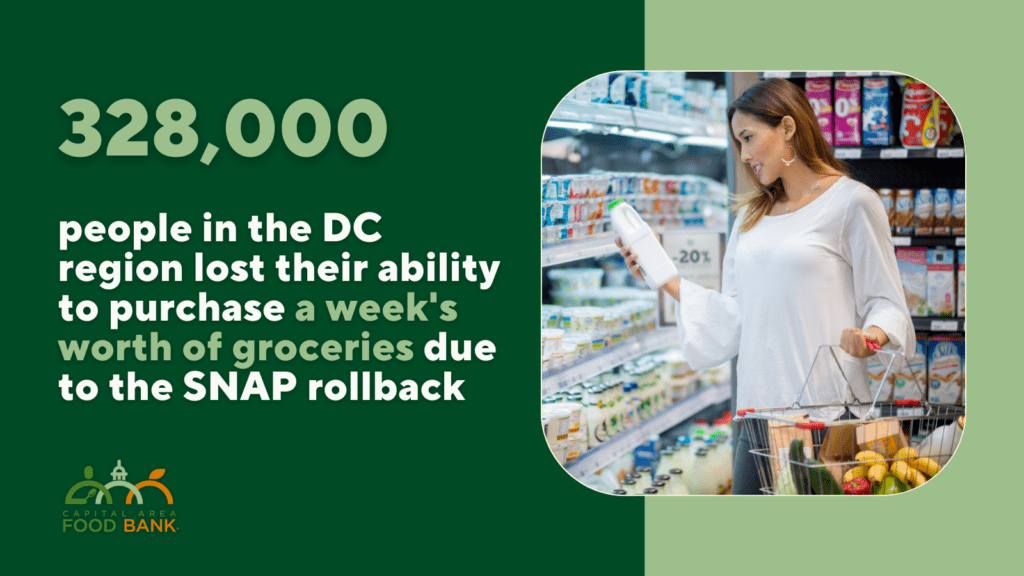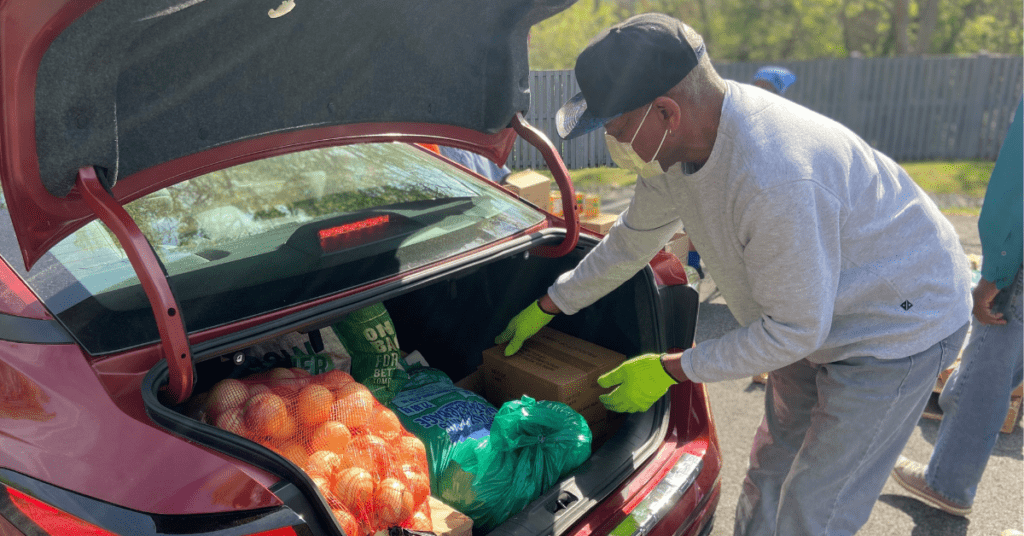The loss of the ability to buy a week’s worth of meals.
That was the impact for at least 328,000 people – and likely far more – in our region when the pandemic-era additional SNAP benefits expired in March.
Rolling back that additional support meant that on average, SNAP participants in our region are now receiving about $93 less than they did in February. Based on the cost of a meal in our region, individuals enrolled in SNAP lost the ability to purchase an average of 23 meals each month, or nearly a week of meals.

Multiply those missing meals across the number of SNAP recipients in our region – a number that’s likely far higher than the 328,000 estimated from 2019 data. The result? At least 7.5 million fewer meals for SNAP participants throughout DC, northern Virginia and Maryland’s Montgomery and Prince George’s counties.
Nearly as soon as those emergency benefits expired, the food bank’s partner organizations across the region began reporting increases in the number of clients coming through their doors. DC-based Brighter Day Ministries reported a line that swung around the block during a recent distribution and ordered additional food to keep up with demand.
Others have noted seeing previous clients who had not sought food assistance in years. Galilee Community Development Corporation, a nonprofit serving Prince George’s County, shared that a veteran who hadn’t visited the food pantry since 2016 called seeking food aid after his SNAP benefits dropped to $23 per month.
Chante Westfield, a mother of three, says she must space out her purchases of meats, fresh produce and eggs; ration meals; and seek more support from a local food pantry.

This decrease in SNAP comes against the backdrop of the slow, uneven economic recovery from the pandemic and the soaring cost of inflation. Many people who lost their jobs during the pandemic may be back to work, but due to low wages they may still be earning far less than what’s needed to provide enough food for their families due to the high local cost of living.
Adding to that are the still-elevated food costs resulting from inflation rates at near 40-year highs, as well as the end of other pandemic-era flexibilities and support programs. Combined, those factors are squeezing local families who must make fewer dollars stretch farther.
The Capital Area Food Bank is here to support our neighbors by working to keep food flowing into the community.
Need food assistance? Find resources near you on our website, or call our Hunger Lifeline: (202) 644-9807.
To provide support for our neighbors who are struggling, go to our Donate page to make a contribution.

